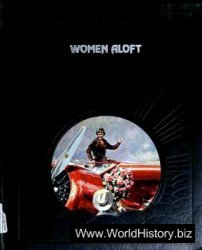Rousseau’s Social Contract (1762)
Jean-Jacques Rousseau (1712-1778) was one of the most radical Enlightenment thinkers. In his works, he suggested that humans needed not only a clearer understanding of natural laws but also a much closer relationship with nature itself and a thorough reorganization of society. He believed that a sovereign society, formed by free association of equal citizens without patrons or factions, was the clearest expression of natural law. This society would make laws and order itself by the genuinely collective wisdom of its citizens. Rousseau sets out the definition of his sovereign society and its authority in the passages reprinted here.
Book I, Chapter 6
"To find a form of association that defends and protects the person and possessions of each associate with all the common strength, and by means of which each person, joining forces with all, nevertheless obeys only himself, and remains as free as before." Such is the fundamental problem to which the social contract furnishes the solution.
Book II, Chapter 4
What in fact is an act of sovereignty? It is not an agreement between a superior and an inferior, but an agreement between the body and each of its members, a legitimate agreement, because it is based upon the social contract; equitable, because it is common to all; useful, because it can have no other purpose than the general good; and reliable, because it is guaranteed by the public force and the supreme power. As long as the subjects are only bound by agreements of this sort, they obey no one but their own will, and to ask how far the respective rights of the sovereign and citizens extend is to ask to what point the latter can commit themselves to each other, one towards all and all towards one.
Source: Jean-Jacques Rousseau, Rousseau's Political Writings, trans. Julia Conaway Bondanella, ed. Allan Ritter and Julia Conaway Bondanella
(New York: 1988), pp. 92-103.
Questions for Analysis
1. What was the goal of political association, according to Rousseau?
2. How did Rousseau claim to overcome the tension between the need for some form of social constraint and the desire to preserve liberty?
3. What is more important for Rousseau: equality or liberty?
In private property, profoundly corrupted “the social contract,” or the formation of government. Under conditions of inequality, governments and laws represented only the rich and privileged. They became instruments of repression and enslavement. Legitimate governments could be formed, Rousseau argued. “The problem is to find a form of association. . . in which each, while uniting himself with all, may still obey himself alone, and remain as free as before.” Freedom did not mean the absence of restraint, it meant that equal citizens obeyed laws they had made themselves. Rousseau hardly imagined any social leveling, and by equality he meant only that no one would be “rich enough to buy another, nor poor enough to have to sell oneself.”
Rousseau’s argument about legitimate authority has three parts. First, sovereignty belonged to the people alone. This meant sovereignty should not be divided among different branches of government (as suggested by Montesquieu), and it could not be usurped by a king. Second, exercising sovereignty transformed the nation. Rousseau argued that when individual citizens formed a “body politic,” that body became more than just the sum of its parts. He offered what was to many an appealing image of a regenerated and more powerful nation, in which citizens were bound by mutual obligation rather than coercive laws and united in equality rather than divided and weakened by privilege. Third, the national community would be united by what Rousseau called the “general will.” This term is notoriously difficult. Rousseau proposed it as a way to understand the common interest, which rose above particular individual demands. The general will favored equality; that made it general, and in principle at least equality guaranteed that citizens’ common interests would be represented in the whole.
Rousseau’s lack of concern for balancing private interests against the general will leads some political theorists to

ENLIGHTENMENT EDUCATION AS ILLUSTRATED IN EMILE. These engravings from Rousseau's influential novel depict Emile's studies in the as opposed to the classroom.
Colored great outdoors
Consider him authoritarian, coercive, or moralistic. Others interpret the general will as one expression of his utopianism. In the eighteenth century, The Social Contract was the least understood of Rousseau’s works. Yet it provided influential radical arguments and, more important, extraordinarily powerful images and phrases, which were widely cited during the French Revolution.
Rousseau was also well known for his writing on education and moral virtue. His widely read novel Emile (F762) tells the story of a young man who learns virtue and moral autonomy in the school of nature rather than in the academy. Rousseau disagreed with other philo-sophes’ emphasis on reason, insisting instead that “the first impulses of nature are always right.” Children should not be forced to reason early in life. Books, which “teach us only to talk about things we do not know,” should not be central to learning until adolescence. Emile’s tutor thus walked him through the woods, studying nature and its simple precepts, cultivating his conscience, and above all, his sense of independence. “Nourished in the most absolute liberty, the greatest evil he can imagine is servitude.”
Such an education aimed to give men moral autonomy and make them good citizens. Rousseau argued that women should have very different educations. “All education of women must be relative to men, pleasing them, being useful to them, raising them when they are young and caring for them when they are old, advising them, consoling
Them, making their lives pleasant and agreeable, these have been the duties of women since time began.” Women were to be useful socially as mothers and wives. In Emile, Rousseau laid out just such an education for Emile’s wife-to-be, Sophie. At times, Rousseau seemed convinced that women “naturally” sought out such a role: “Dependence is a natural state for women, girls feel themselves made to obey.” At other moments he insisted that girls needed to be disciplined and weaned from their “natural” vices.
Rousseau’s conflicting views on female nature provide a good example of the shifting meaning of nature, a concept central to Enlightenment thought. Enlightenment thinkers used nature as a yardstick against which to measure society’s shortcomings. “Natural” was better, simpler, uncorrupted. What, though, was nature? It could refer to the physical world. It could refer to allegedly primitive societies. Often, it was a useful invention.
Rousseau’s novels sold exceptionally well, especially among women. Julie (subtitled La nouvelle Hcloise), published just after Emile, went through seventy editions in three decades. Julie tells the story of a young woman who falls in love with one man but dutifully obeys her father’s order to marry another. At the end, she dies of exposure after rescuing her children from a cold lake—a perfect example of domestic and maternal virtue. The tragic love story and Rousseau’s conviction that the heart was as important as the mind and that passion was more important than reason appealed to his audience. Rousseau’s novels became part of a larger cult of sensibilitc (“feeling”) in middle-class and aristocratic circles, an emphasis on spontaneous expressions of feeling, and a belief that sentiment was an expression of authentic humanity. Thematically, this aspect of Rousseau’s work contradicted much of the Enlightenment’s cult of reason. It is more closely related to the concerns of nineteenth-century romanticism.
Rousseau’s sharpest critic was the British writer Mary Wollstonecraft (1759-1797). Wollstonecraft published her best known work, A Vindication of the Rights of Woman, in 1792, during the French Revolution. Her argument, however, was anchored in Enlightenment debates and needs to be




 World History
World History









